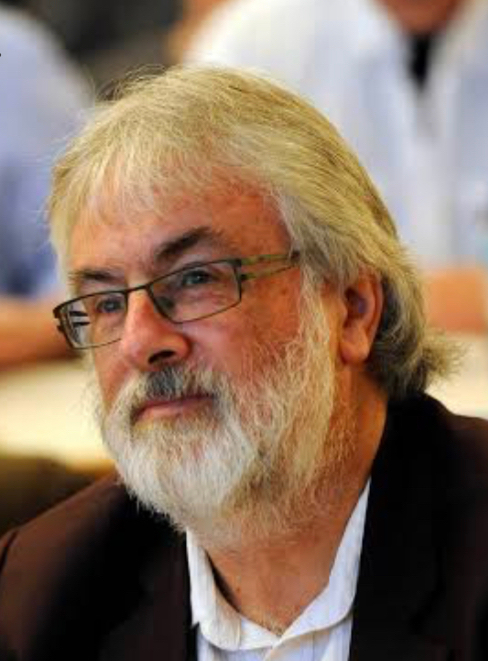By this Saturday evening we should know the result of the euthanasia referendum held in conjunction with both the general election and cannabis referendum. The euthanasia referendum is unusual in that it is binding and legislation already in place should the ‘yes’ vote prevail.
The legislation is called the End of Life Choice Act 2019 which seeks to give those with a terminal illness the right to receive assisted dying. Assisted dying includes both euthanasia and assisted suicide. The original bill was much more libertarian in nature, dangerously so, but through an extensive select committee process has been tightened up and confined to people with terminal illnesses.
Nevertheless this end of life choice is narrowly constrained. With new ‘normals’ likely to emerge it is likely to be the kind of choice you have when you are not having choice.
Good death is a greater right
Despite becoming more protective of people the whole thrust of End of Life Choice Act misses the most important right; that is, the right to a ‘good death’. A ‘good death’ respects the rights of individuals to dignity and respect. This includes being without pain and in as familiar circumstances as possible.
A ‘good death’ should be free from avoidable stress and suffering for patients, families and caregivers. This includes the death process being in general accord with patients and families wishes. Further, the death process should be reasonably consistent with clinical, cultural and ethical standards.
To achieve a ‘good death’ for terminally ill patients you need a public health system that values end of life much more than it currently does. It requires sufficient workforce capacity, primarily palliative medicine specialists and nurses along with sufficient hospice capacity. We provide high quality palliative care for those patients who can access palliative care but many can’t.
Poor state of palliative care
While respecting the generosity of New Zealanders, it is both immoral and an indictment of our public health system that hospices have regular for fundraising appeals to ensure the level of provision that is currently provided.
According to Medical Council data, in 2019 there were 10,448 vocationally registered specialists (including general practitioners) in New Zealand. But palliative medicine specialists are a paltry 71 (0.7%). Like other branches of medicine palliative care is heavily labour intensive.
Unfortunately, workforce neglect has been a feature of both the current and (more so) former governments for over a decade. Consequently there is no reason to expect any change whoever leads the next government. This is disgraceful but the likely reality confronting us.
Palliative medicine specialists advise that patients who were stressed about their final weeks or months of life, some of whom wishing for euthanasia, are greatly pleased by the support they receive when they can access it. But many of the terminally ill can’t access palliative care because of severe workforce shortages and limited facility capacity.
Unacceptable new ‘normals’
One of the things that has arisen out of sustained underfunding of our public health system is an erosion on the capacity to provide comprehensive patient centred care. In turn, this has led to the emergence of new ‘normals’ of suboptimal care. This is demoralising for health professionals to cope with.
I accept that much work has been put into trying to ensure in the Act protection for patients from abuse. But, with the new ‘normal’ of a continued severely under-resourced palliative care and hospice service and new legislation enabling euthanasia for the terminally ill, these protections seriously risk becoming irrelevant. This deadly combination is a menu for an unconscious slippery slide to what supporters of the Act don’t appear to intend.
Way forward
What is the way forward? First, we need to forcefully advocate for well-resourced palliative care so those who would benefit can access it. And we need a government that will respond positively to this advocacy.
Second, we need a more nuanced process that includes ethicists to discuss how best we can manage ‘good deaths’ for all. This is much more complex than a simple issue of choice which, in the context of end of life, is a very narrow choice.
Third, we need to have an even more difficult conversations, again including ethicists, on how we provide for those who are not terminally ill but face ongoing insufferable pain and poor quality of life with no prospect of improvement. They are not covered by the End of Life Choice Act. But it is a conversation we must have.
For these reasons I will be voting no in the euthanasia referendum.
Originally published here.



 Binoy Kampmark: Concentrated Markets And Iceless Fokkers
Binoy Kampmark: Concentrated Markets And Iceless Fokkers Binoy Kampmark: Catching Pegasus - Mercenary Spyware And The Liability Of The NSO Group
Binoy Kampmark: Catching Pegasus - Mercenary Spyware And The Liability Of The NSO Group Ramzy Baroud: The World Owes Palestine This Much - Please Stop Censoring Palestinian Voices
Ramzy Baroud: The World Owes Palestine This Much - Please Stop Censoring Palestinian Voices Dee Ninis, The Conversation: Why Vanuatu Should Brace For Even More Aftershocks After This Week’s Deadly Quakes: A Seismologist Explains
Dee Ninis, The Conversation: Why Vanuatu Should Brace For Even More Aftershocks After This Week’s Deadly Quakes: A Seismologist Explains Martin LeFevre - Meditations: Meditation Without A Method
Martin LeFevre - Meditations: Meditation Without A Method Ramzy Baroud: Israel To Annex The West Bank – Why Now? And What Are The Likely Scenarios?
Ramzy Baroud: Israel To Annex The West Bank – Why Now? And What Are The Likely Scenarios?